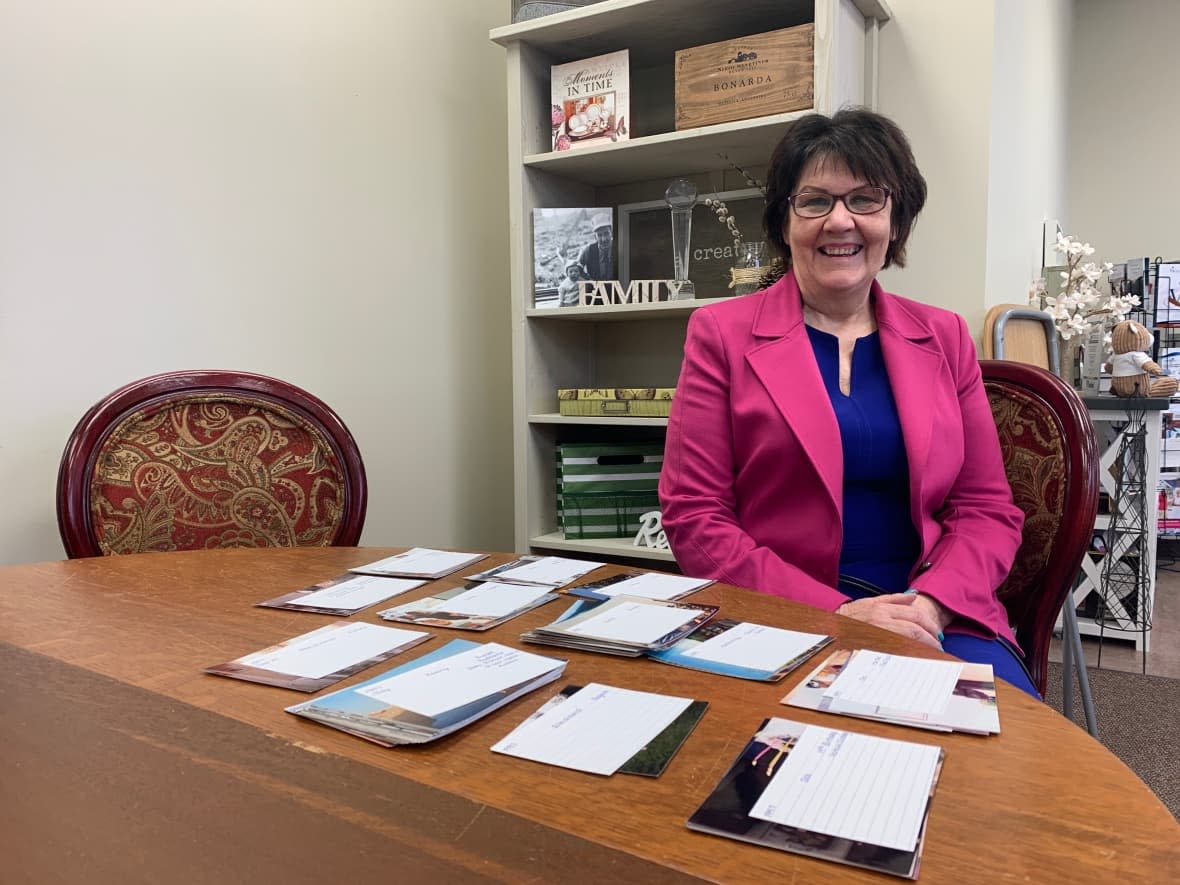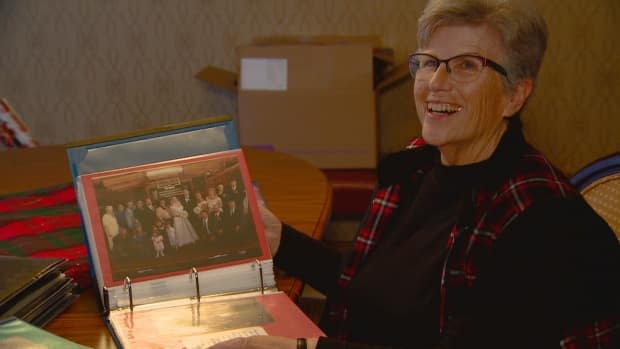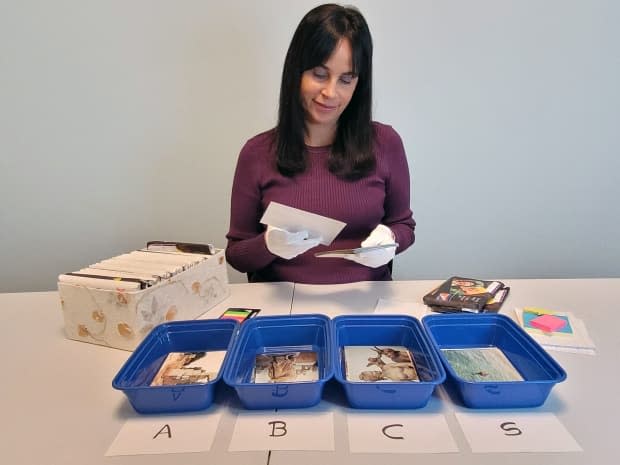Drowning in family photos? Professional photo managers share tips on sorting large collections

Taking photos is easy, but organizing the tens of thousands that accumulate over a lifetime is anything but.
Professional photo managers know this — they make a living sorting, scanning, renaming, restoring, organizing and transforming troves of family photos into orderly collections and scrapbooks.
As Albertans set lofty New Year's resolutions to organize their photo collections, Karen Murdock, a St. Albert photo manager who runs Treasured Photo Collections, expects January and February to be the slowest months of her year.
"What happens is, they think they can do it on their own and they'll start trying to organize their photos on their own and work with them, and then they'll give us a call," she said.
"It is similar to when you go to an art gallery and you look at the paintings and you say, 'Oh, I could do this painting, it looks easy.' It's not that easy," said Carmen Carvajal, a part-time photo manager who runs Forever Neat Organizing in Edmonton.
Both photo managers say organizing large family photo collections is time-consuming but ultimately rewarding, whether you do it yourself or hire a professional.
'I was overwhelmed'
With Karen Murdock's help, Edmonton's Barbara Galbraith has thrown away four garbage bags full of family photos and created photo books to show off the highlights of her relatives' lives.
"I was overwhelmed and didn't know how to even begin this process," Galbraith said.

"She makes it fun and we laugh and talk about the old times, when bottled milk was delivered," Galbraith said.
Murdock prefers working alongside clients, which she has been doing for decades. Before becoming a photo manager, she worked in the funeral industry for more than 20 years, helping grieving families organize and present photos for memorial services.
Some clients prefer to hand her the reins, dropping off tubs of disorganized photos at her office.
Middle-aged women and downsizing seniors make up the majority of clients for Carvajal, who discovered the industry after finding a bag of her parents' unlabelled photos and trying to better organize her own collection.

Carvajal said photo managers have an eye for photography and can evaluate the esthetic merits of photos without getting bogged down in the memories they evoke.
"There are certain things that we are seeing that maybe the client is not seeing and we are able to advise as to what's the best photo to keep," she said.
Mysteries and discoveries
One of Murdock's favourite parts of the job is identifying unknown people and places.
She can date pictures based on hairstyles and once identified three unknown boys by tracking down the photography studio where a photo had been taken and cross-checking it with a family's genealogical tree.
Amid hundreds of dog portraits, lacklustre sunsets and duplicates, photo managers sometimes stumble upon surprises, like pictures of historical figures or images not meant for their eyes.
"One photo was in an envelope and I didn't know why, and I sliced open the envelope, took one look at the photo, closed it up and gave it back to them discreetly so as not to embarrass my client," Murdock said.
Both Murdock and Carvajal belong to an international industry association that has a shared set of best practices and a code of ethics.
Organizing 101
Having photos professionally organized is neither cheap nor quick — Murdock charges between $52 and $72 per hour and some of her projects can take up to a year to finish.
Both photo managers have tips on how to organize a large collection yourself.
Carvajal recommends backing up digital photos, sorting recent photos first and setting a goal for a project, like a family member's milestone birthday.

Photo managers use a letter system for sorting: A for album-worthy shots, B for the next-best, C for the trash can and S for photos that tell a story.
Murdock suggests breaking up large projects into manageable chunks, having a designated workstation and using archival-safe writing instruments.
She plans to host a free three-hour workshop with a local non-profit on preserving photo collections on January 17.
"Because everybody deserves to have organized photos and stories," she said.


